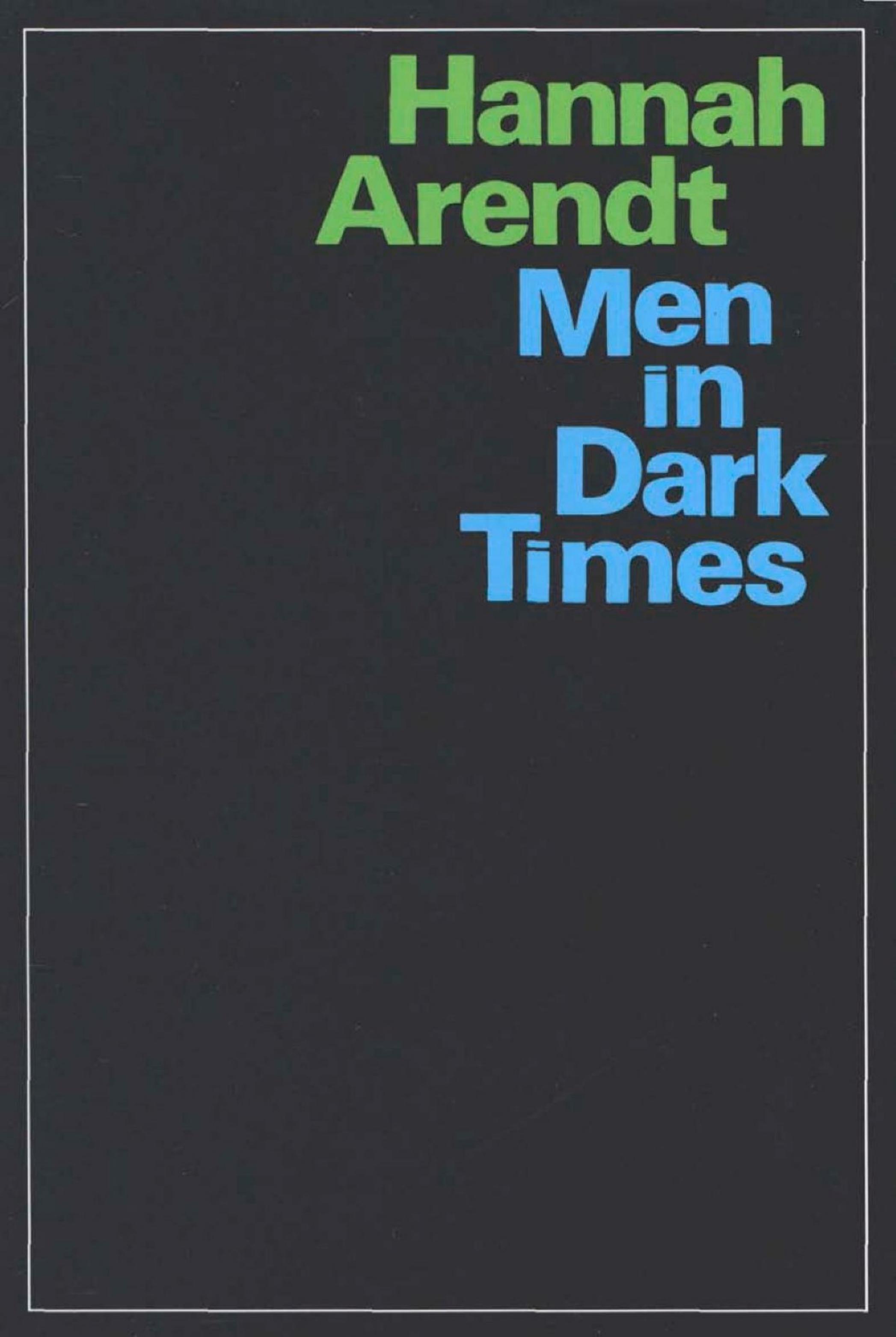Men in Dark Times by Hannah Arendt

Author:Hannah Arendt [Arendt, Hannah]
Language: eng
Format: mobi, epub, pdf
Tags: Philosophy
ISBN: 9780547542058
Google: jRMCnTn0Ks4C
Amazon: B0074TBTAA
Barnesnoble: B0074TBTAA
Goodreads: 16555593
Publisher: Houghton Mifflin Harcourt
Published: 1968-01-01T05:00:00+00:00
Broch believed that his theory of the earthly absolute could be applied directly to politics, and in the two chapters of the “condensed” Mass Psychology he actually, though fragmentary, did translate his epistemology into ideas of practical politics. He thought this could be done because he construed all political action in terms of those acts which play the central part in his theory of knowledge, and which are conceived as in themselves worldless, or, as he himself puts it, “in a camera obscura.”90 In other words, he was not really concerned with political action or with action at all; what he wanted was to answer the question he had posed in his youth: “What then shall we do?”
Acting and doing are no more identical than thinking and knowing. Just as knowing, as opposed to thinking, has a goal of cognition and a cognitive task, so doing has specific aims and must be governed by specific standards in order to attain them, whereas acting always takes place wherever human beings are together, even if there is nothing to be attained. The ends-means category, to which all doing and all producing are necessarily bound, always proves to be ruinous when applied to acting. For doing, like producing, starts with the assumption that the subject of the “acts” fully knows the end to be attained and the object to be produced, so that the only problem is to find the proper means to achieve those ends. Such an assumption in turn presupposes a world in which there is only a single will, or which is so arranged that all the active ego-subjects in it are sufficiently Isolated from one another so that there will be no mutual interference of their ends and aims. With action the reverse is true; there is an infinitude of intersecting and interfering Intentions and purposes which, taken all together in their complex immensity, represent the world into which each man must cast his act, although In that world no end and no intention has ever been achieved as it was originally intended. Even this description, and the consequent frustrating nature of all deeds, the ostensible futility of action, is inadequate and misleading because really conceived in terms of doing, and that means in terms of the ends-means category. Within these categories we can only agree with the Gospel phrase: “For they know not what they do”; in this sense no acting person ever knows what he is doing; he cannot know and for the sake of man’s freedom is not permitted to know. For freedom is dependent on the absolute unpredictability of human actions, If we would express it paradoxically—and we invariably become entangled in paradoxes as soon as we attempt to judge action by the standards of doing—we can say: Every good action for the sake of a bad end actually adds to the world a portion of goodness; every bad action for the sake of a good end actually adds to the world a portion of badness.
Download
Men in Dark Times by Hannah Arendt.epub
Men in Dark Times by Hannah Arendt.pdf
This site does not store any files on its server. We only index and link to content provided by other sites. Please contact the content providers to delete copyright contents if any and email us, we'll remove relevant links or contents immediately.
The remains of the day by Kazuo Ishiguro(7542)
Tools of Titans by Timothy Ferriss(6935)
The Black Swan by Nassim Nicholas Taleb(6184)
Inner Engineering: A Yogi's Guide to Joy by Sadhguru(5887)
Giovanni's Room by James Baldwin(5871)
The Way of Zen by Alan W. Watts(5789)
The Six Wives Of Henry VIII (WOMEN IN HISTORY) by Fraser Antonia(4784)
The Power of Now: A Guide to Spiritual Enlightenment by Eckhart Tolle(4749)
Astrophysics for People in a Hurry by Neil DeGrasse Tyson(4614)
Asking the Right Questions: A Guide to Critical Thinking by M. Neil Browne & Stuart M. Keeley(4566)
12 Rules for Life by Jordan B. Peterson(3723)
The Ethical Slut by Janet W. Hardy(3494)
Skin in the Game by Nassim Nicholas Taleb(3456)
Housekeeping by Marilynne Robinson(3396)
The Art of Happiness by The Dalai Lama(3378)
Double Down (Diary of a Wimpy Kid Book 11) by Jeff Kinney(3267)
Skin in the Game: Hidden Asymmetries in Daily Life by Nassim Nicholas Taleb(3259)
Walking by Henry David Thoreau(3227)
12 Rules for Life: An Antidote to Chaos by Jordan B. Peterson(3196)
